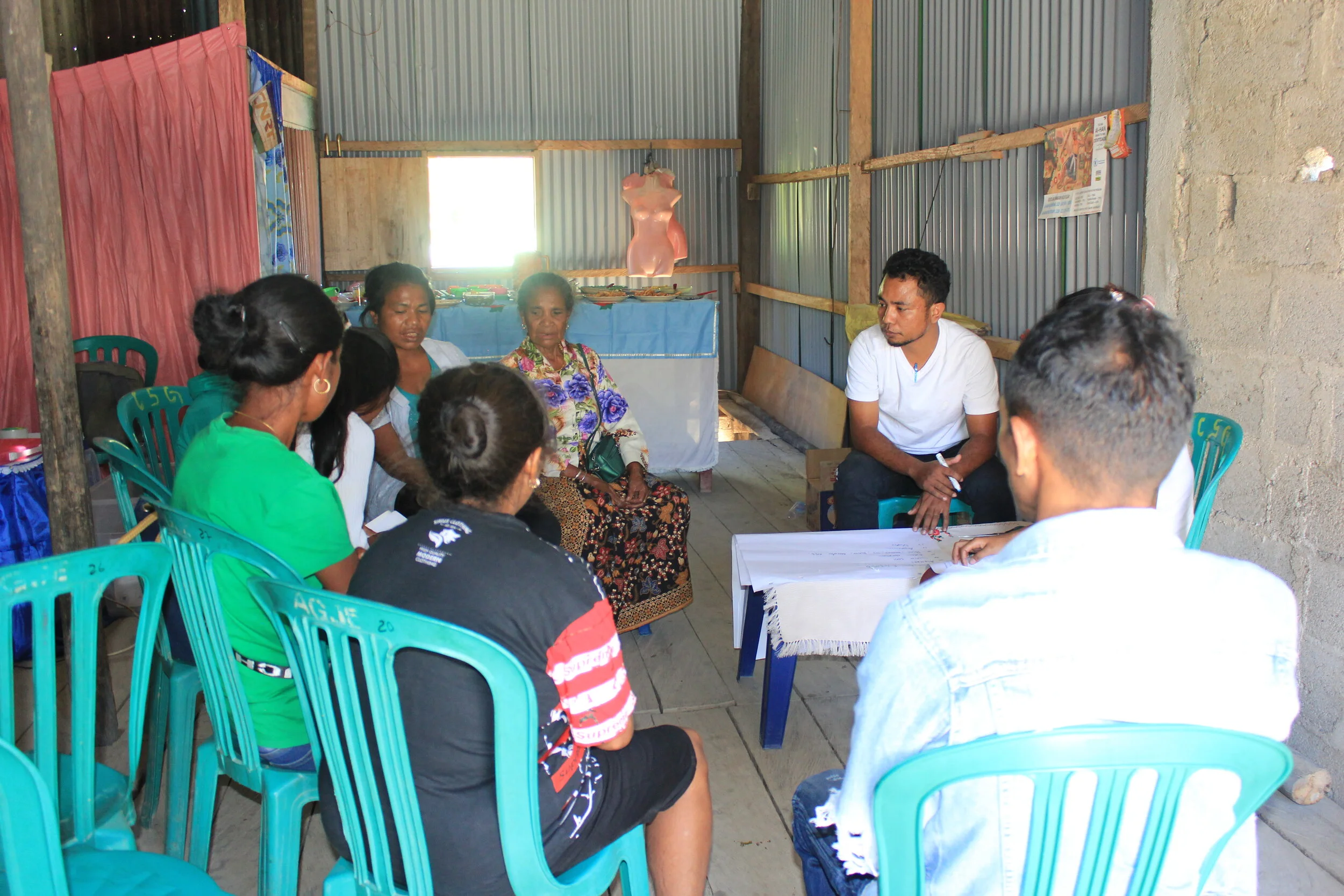Listening to Women Victims, Local Communities, and Local NGOs
In October 2020, Fokupers and a team of consultant travelled to the districts of Ermera, Manufahi-Same, Liquica, and Dili to conduct a baseline survey, rapid assessment, and market scan as part of the “Reforsa Hamutuk” program, a collaborative program between Fokupers, ACbit, and Hivos that is supported by the European Union to promote social inclusion and economic development of women victims of gender-based violence and victims of past conflicts in Timor-Leste.
The research aimed to look into the real conditions experienced by women victims and survivors that had been accompanied by Fokupers and ACbit, as well as the level of community satisfaction towards public services available to them. In the four districts identified, Fokupers organized meetings and invited women survivors and victims, local community members, and representatives of local NGOs to participate in joint discussions, surveys, and interviews. Through the activities, the team saw and heard about the potential and obstacles faced by women survivors and victims, how the government responded to their problems, and how the resources they earned from their hard work had a positive value in the eyes of their local community.
In their everyday lives, women survivors and victims are usually the main provider for themselves and their families. There have been efforts from the government to respond to their needs, but some of the pressing needs are still unaddressed. They need to earn a living because, after coming out of their experience of violence, women survivors and victims would live separately from their partners. While fending for themselves, they also experience discrimination and are ostracized from the community around them. Regardless, these women rebuild their lives while battling fear and trauma as they feel that they must rise and stay strong for their children.
Talking about obstacles specific to building a business, women survivors and victims identified the lack of understanding in business and how to properly manage all resources as their main challenges. Infrastructure limitations, such as road conditions, and fulfilling obligations in accordance to local norms and customs were also mentioned among issues that need to be addressed to build more support for women survivors and victims.
In terms of legal regulations, Timor-Leste has strong laws on domestic violence and gender-based violence. However, in their implementation, the legal processes take a long time, leaving the victims with anger as their abusers were let free for years. It also tends to make them feeling hopeless and helpless, trying to forgive and forget about the violence they experienced, thinking that the law in Timor-Leste only applies if the victims are important people. Meanwhile, for ordinary people, the law is only something that is written on papers.
The complete results and findings from the baseline survey, rapid assessment, and market scan will be compiled and used by the project team as the basis to develop activities that can help address the needs of and provide assistance for the survivors and victims of gender-based and past-conflict violence.

